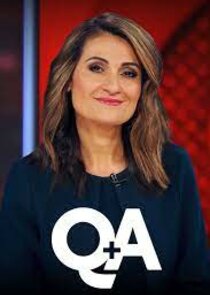Q+A S2023E06 - Words That Offend and Referendums

Sinopse
As a censorship debate rages over cuts and rewrites to apparently make Roald Dahl's children's books more palatable to today's readers, the publisher now says it will produce two versions of his novels – with and without the changes. As social mores and views change, what does that mean for literature of the past? Are some books simply too offensive for a modern audience?
Literature can help us make sense of the world – but what happens to those readers who don't see themselves reflected in stories? Or see themselves as little more than a stereotype? Is there a way to celebrate differences without defining people by them?
Meanwhile, the approaching referendum on a Voice to Parliament is forcing Australians to decide who gets to have a say in our future. And within the "yes" and "no" camps there are differing views – which one will prevail? Does a binary question allow for enough nuance in the discussion?
And the PM is being accused of breaking faith with voters as Labor confirms its plan to wind back tax concessions on multi-million-dollar superannuation balances. So should politicians be allowed to change their views? Does being locked into a promise stymie policy?
Joining Stan Grant on the panel:
David Hare, British playwright
Teela Reid, Wiradjuri and Wailwan lawyer
Pragya Agarwal, Author and behavioural scientist
Matt Thistlethwaite, Assistant Minister for the Republic
Andrew Bragg, Liberal Senator for NSW
Informações
- Status: Transmitido
- Data de Exibição: 06/03/2023
- Emissora:
 ABC
ABC